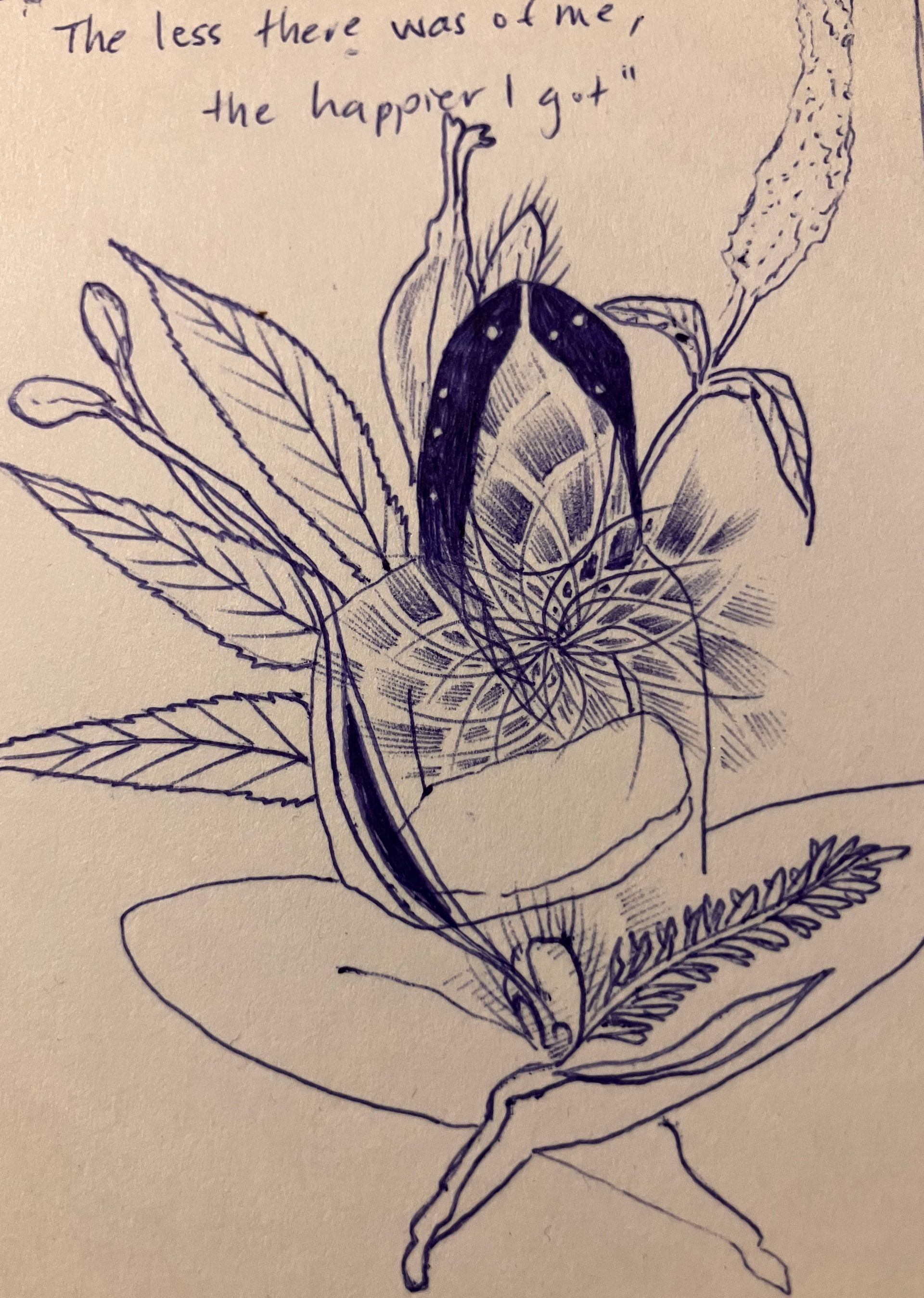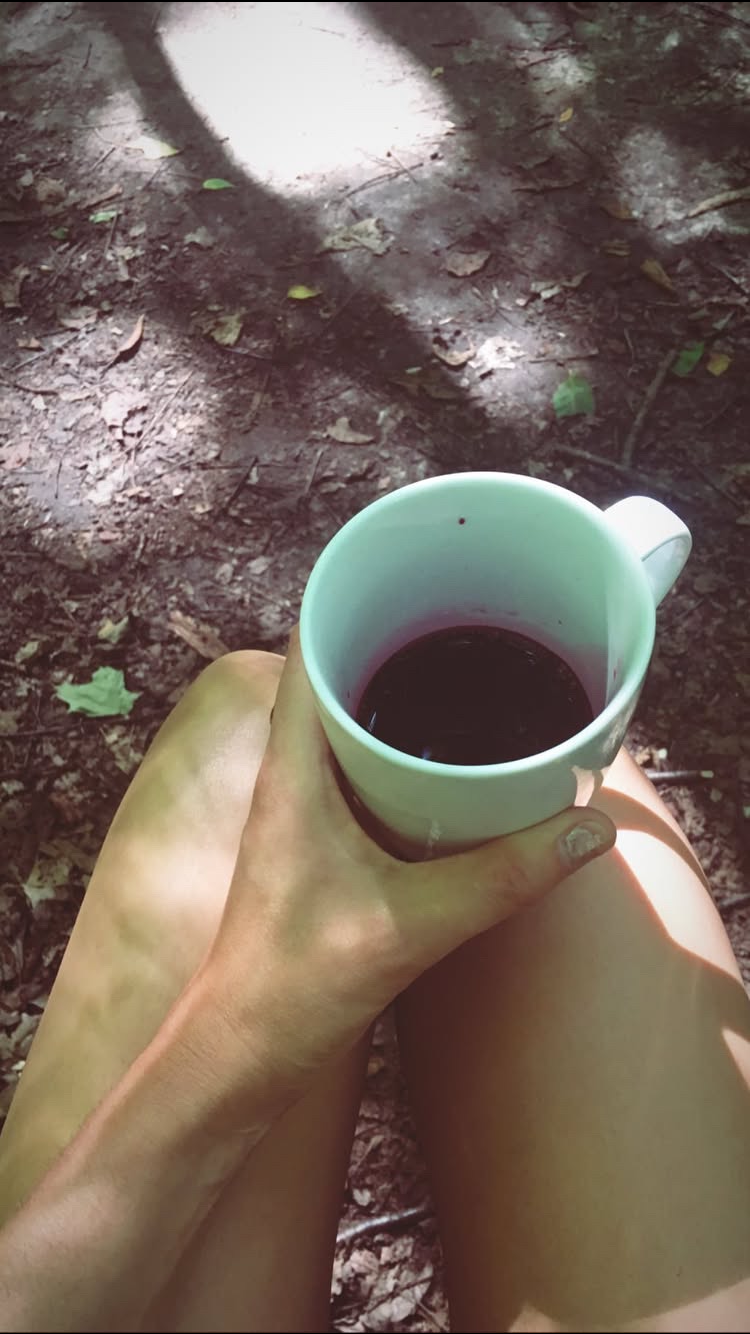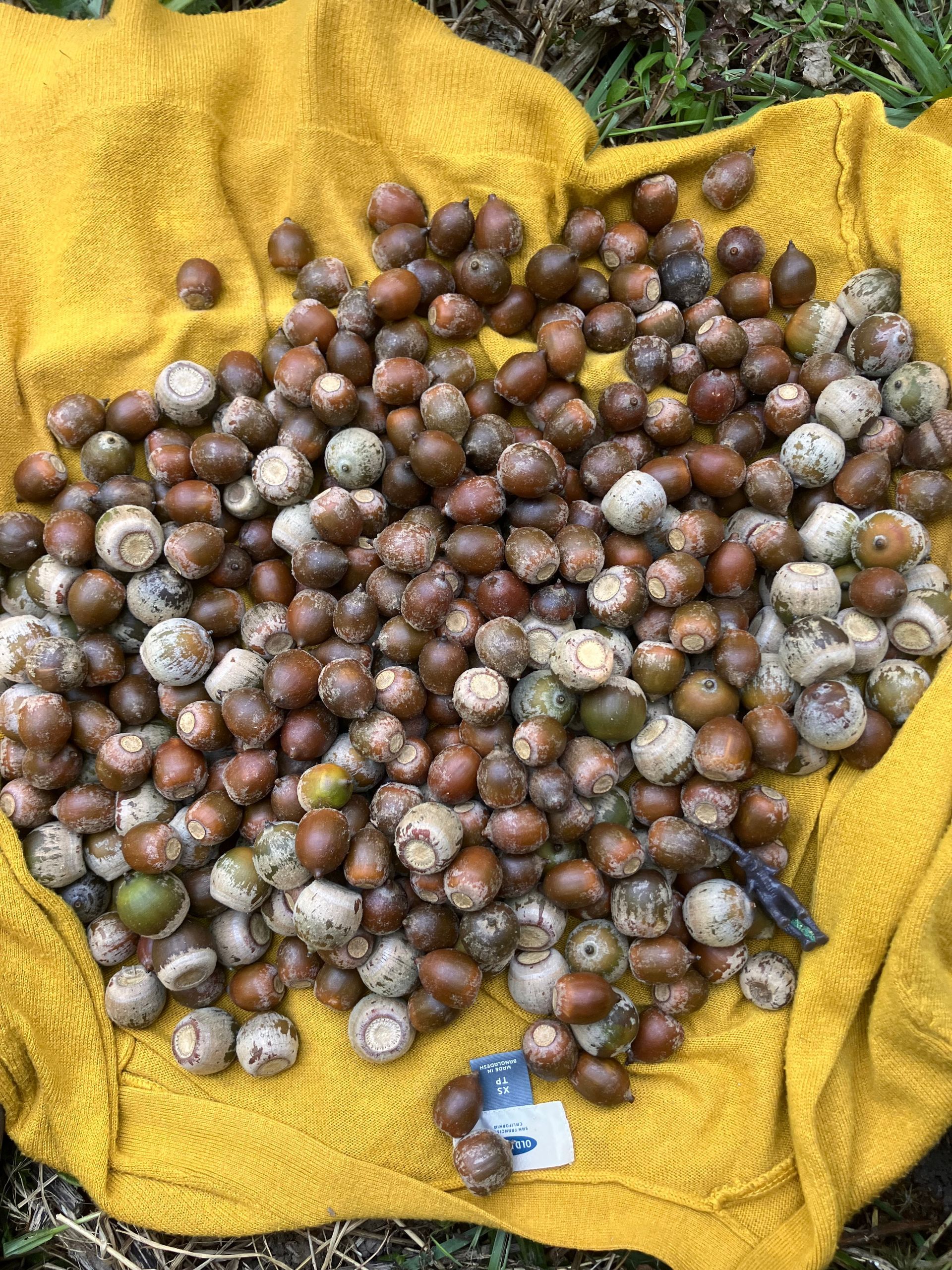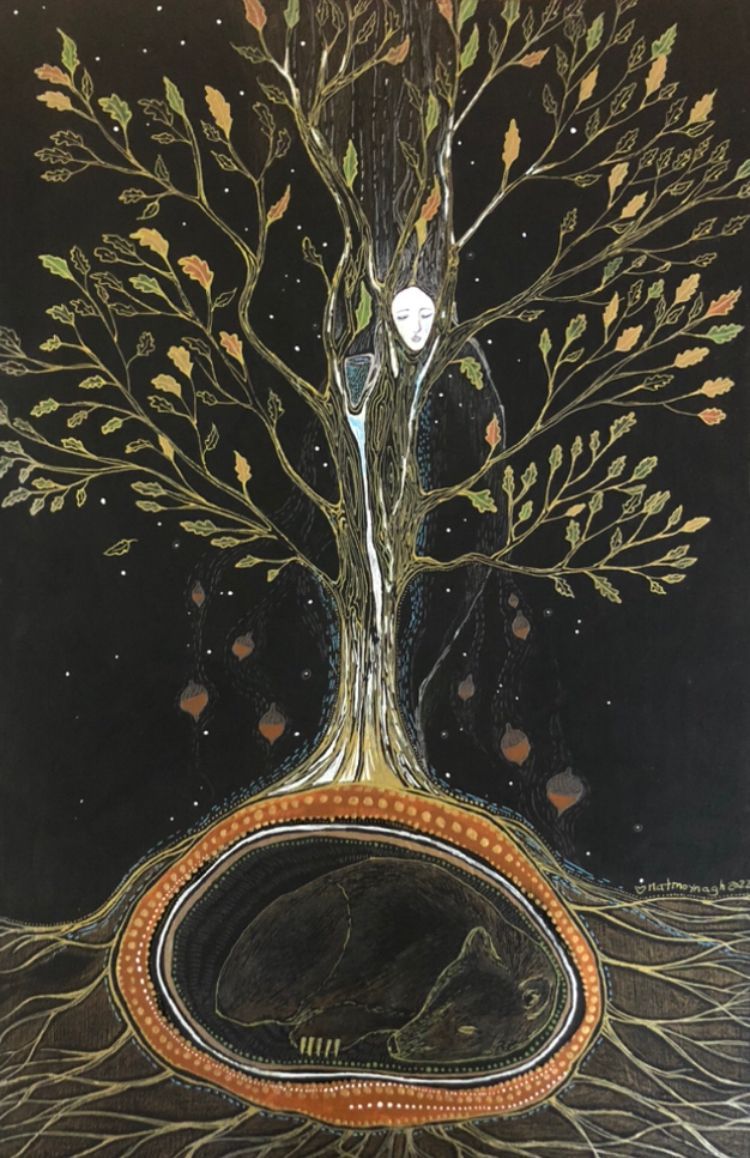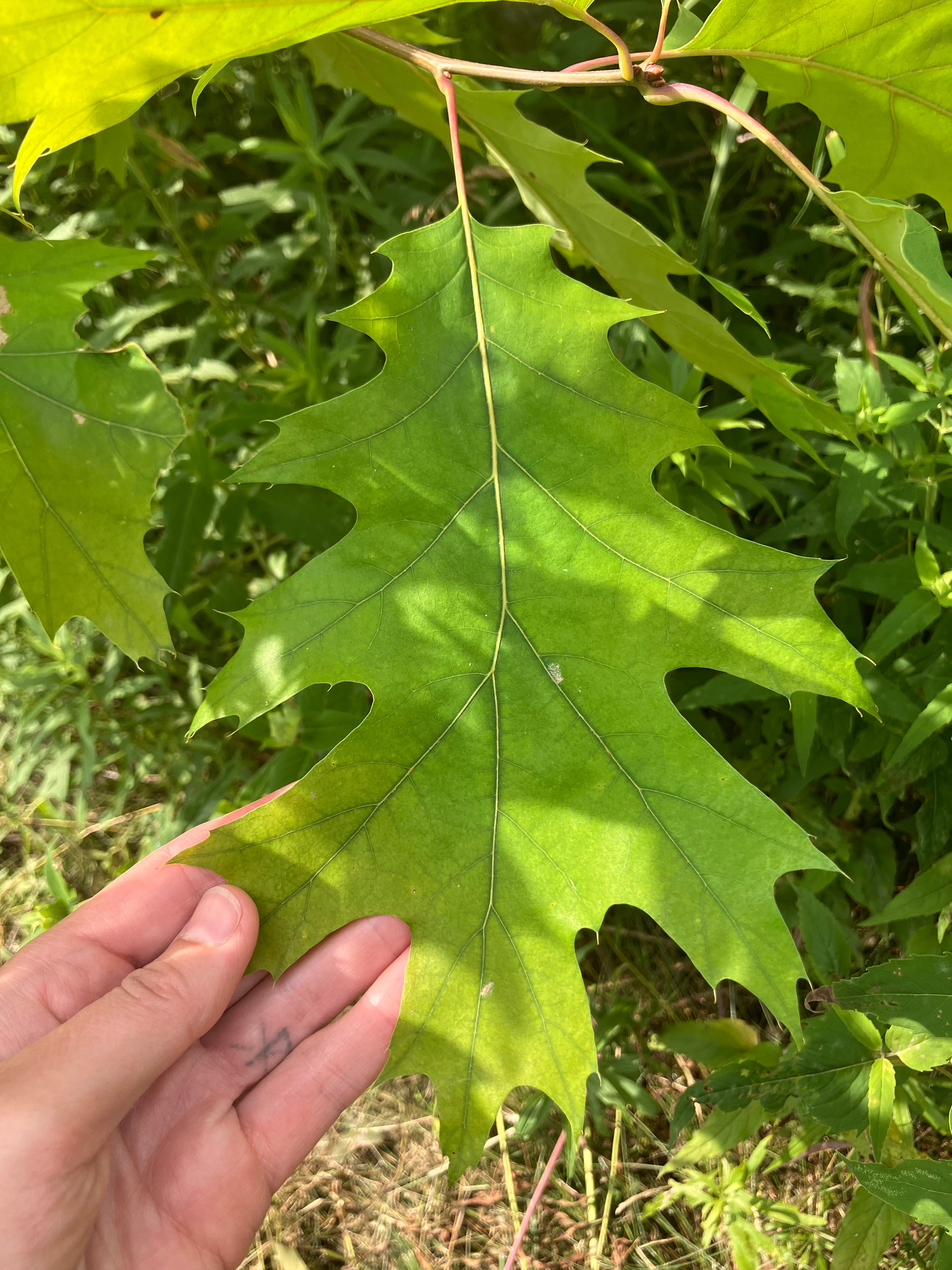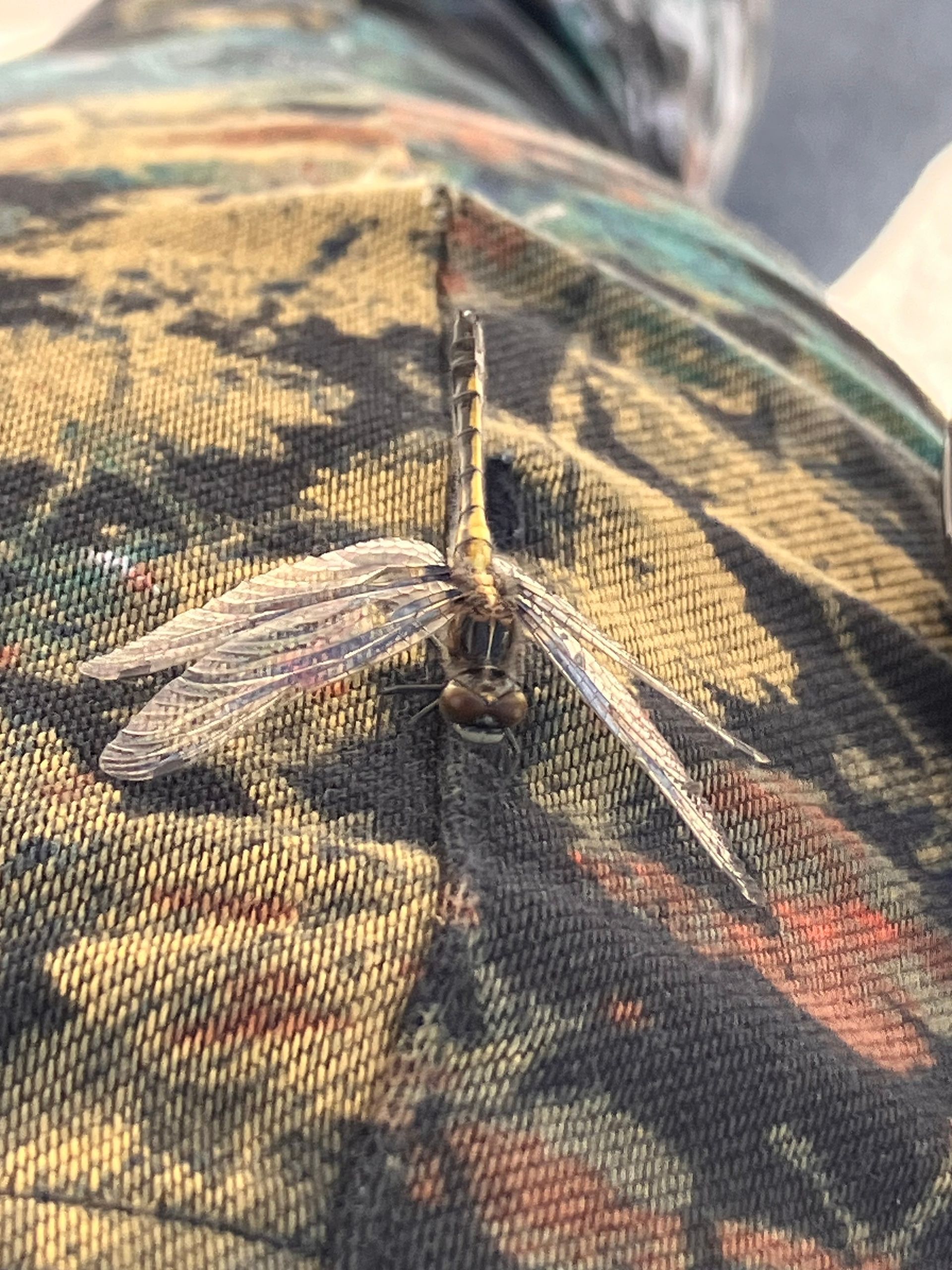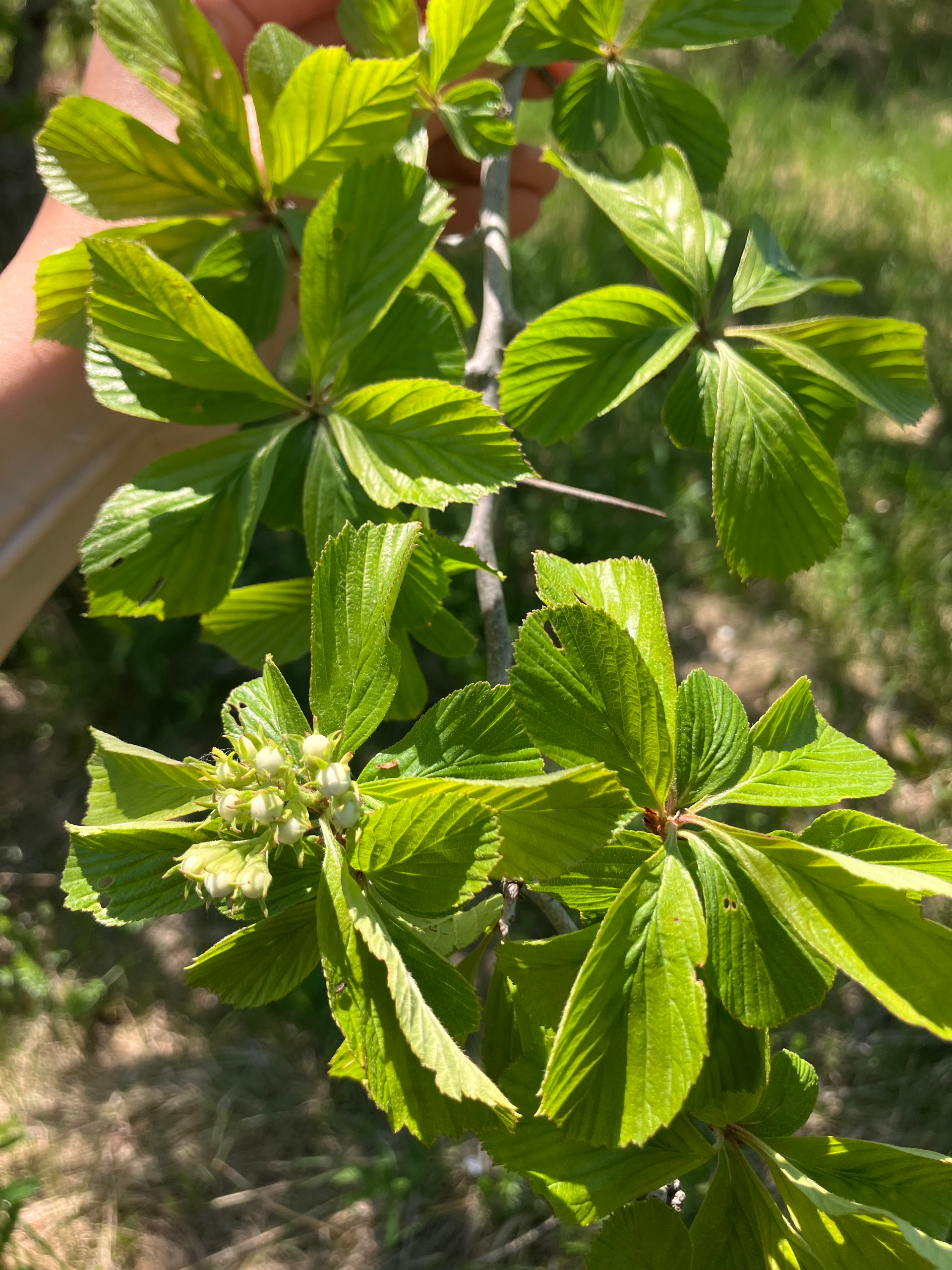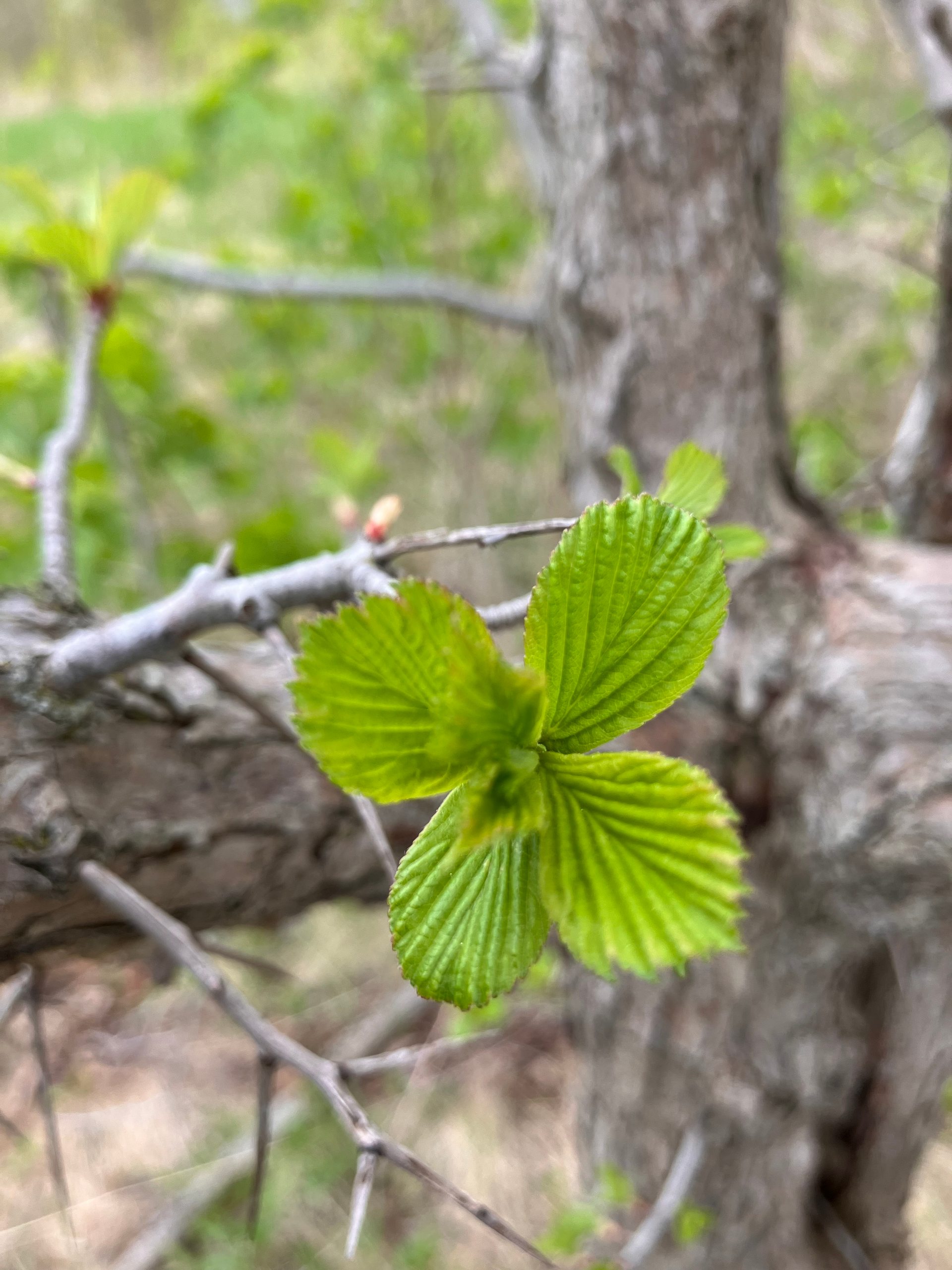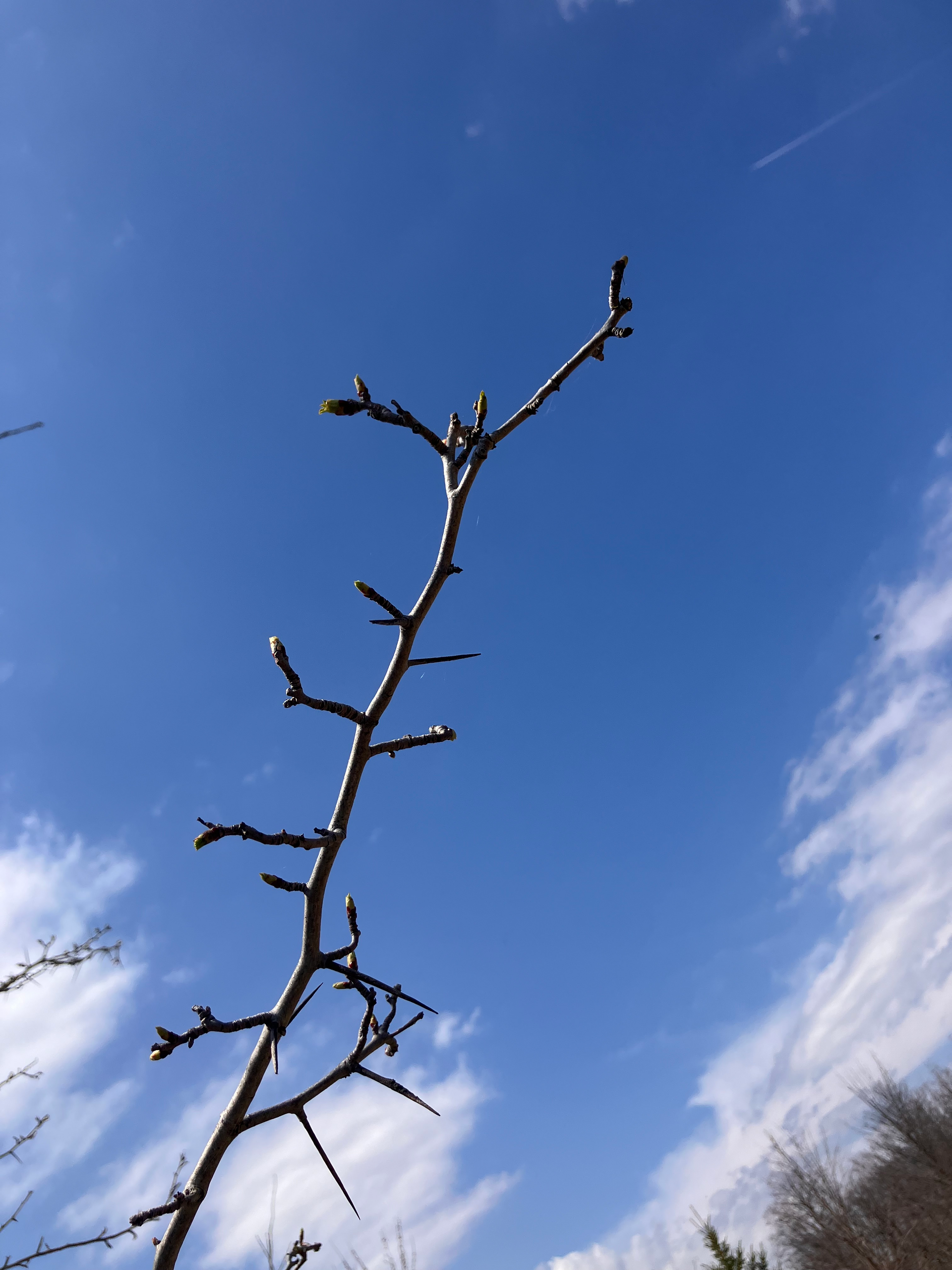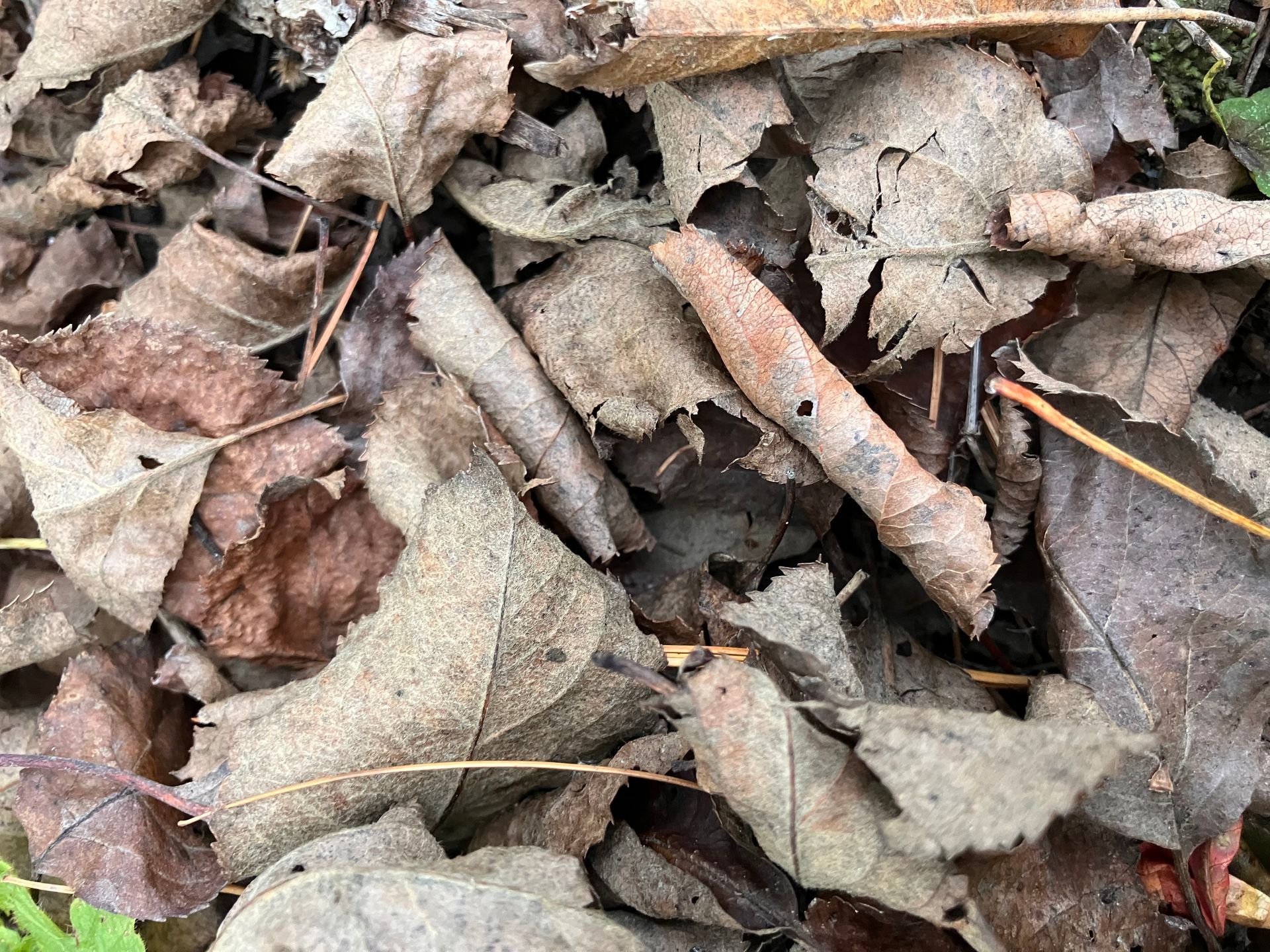
Hawthorns turned to apple trees ~ October 1st - Samhain 2025
So I went to visit the hawthorns the other day, thinking I would harvest some haws for chutney and lo and behold instead of hawthorn berries I found ...apples....lol
I was shocked, humbled, embarrassed, but have landed on it being pretty funny and a good reminder to me that you don’t reaaaallllly know someone until you’ve been in relationship with them for 4 years, so they say for people. For trees, at least a year so you can see them through all of their seasons.
Another thing I’ve been humbled by this year is that I thought I also knew service berry trees because I have been feasting on their berries for years. Usually with Amara, we would bring huge sheets to lay under various service berry and mulberry trees, Amara would climb up high and shake the trees and tons of berries would fall to the ground - truly a very efficient way to harvest. We made many pies and got kinda (prob legitimately) high on berries (more on that later perhaps) as we filled our containers & bellies. Amara would also use the fabric later to make berry stained patches to sell on etsy. It always amazed me people were all about them, they loved those berry stained patches.
But anyway, I realized when my partner pointed out a young service berry tree to me in early spring that I truly had no idea what they looked like the rest of the year. How selfish have I been to only know a tree in a certain season when it has something to offer me, gah, also embarrassing.
Another good lesson for me, which reminds me of
“good boob, bad boob” theory.
Who was it, maybe Melanie Klein who came up with this theory to illustrate a developmental phase we all hopefully move through. The idea is that when we’re babies we think when our mother is feeding us, she's the good mother (the good boob) and when she’s not providing us with what we need, she’s the bad mother (the bad boob). Obviously the theory is related to breast feeding but applies probably also to bottle fed babies and meeting needs in general I would imagine. How vulnerable we are as little ones, completely dependent usually on one or two people to sustain our lives (though hopefully a village).
I just think of all the little babies who had to “cry it out” back when that was the norm, so many little ones deprived of the comfort and care of someone familiar close by.
I re-member reading that not being met or attuned to in these ways for babies was described by Winnicott (in “good enough mother”) as if they were “going to pieces, falling forever, dying and dying and dying or losing all vestige of hope of the renewal of contacts”.
I think for me, watching Amara die from a distance felt a little bit like this. I definitely felt like I was dying too and I think my nervous system mistakenly followed suit, agreeing and perceiving continuous threat when the danger in reality was “just” the psychic pain I was in.
Anyway, back to the theory - at some point we realize the good mom/bad mom is actually the same mom whether she’s giving us what we want or not. As adults this can still be a thing sometimes as not all developmental stages are completed (or stable), but we’re more likely to call it demonizing or idealizing. As a coping mechanism in psychology it’s called splitting I believe and the opposite is prob integration.
Some years before Amara died in 2018 I shared about “good boob, bad boob” theory with them (around solstice time) and it really helped them understand some tension they were experiencing with one of their close friends. I’ve seen so many people struggle in this way, with demonizing and idealizing. It’s very human and helpful to know about, not to pathologize, but to understand. Makes me think of this buddhist term - maitri - which “starts with cultivating a friendly, non-judgmental attitude towards yourself, acknowledging and embracing your imperfections” (Pema Chodron), which can then be extended to others as well, embracing them in their humanness and wholeness.
Some say this "splitting" is a coping mechanism and others say it's just a very common human habit we all fall prey to sometimes.
Thinking about all of this I’m also reminded of “tonglen” this practice of using breath and visualization to engage or embrace our suffering. It is kind of like “using what seems like poison as a medicine” (p.c). It goes something like this (in this context):
“I breathe in for all of us who get stuck in these ways, who armour ourselves against “others” whom we mistakenly perceive as our enemies, ie bad or wrong or at fault in some way, who we feel hurt by. I breathe in the suffering we experience when we lose sight of each-others humanness, when we judge and condemn others in their wholeness, in their rawness and imperfect ways. I breathe in the pain of getting stuck in an ego or pain story related to some fault we perceive in another. I breathe out knowing there are millions of others getting stuck in the same way, exaggerating the faults of others and seeing only certain aspects of them. I breathe out compassion and understanding for our collective suffering. I breathe out care for the vulnerability and the grief in our emotional pain, for our tender hearts, for the fear and anger that clouds our vision.”
This is the medicine and the counter balance to the inner demons of anger, illusion, fear, dishonesty, guilt and shame etc.
In buddhism, there is also a practice which feels connected to me to "good boob, bad boob theory", maybe simply because I know about it, because it’s a human tendency we have to exaggerate the positive or negative qualities in others - the idea in buddhism is that when you catch yourself idealizing someone to remind yourself of their bad qualities and when you find yourself focusing on someone’s bad qualities to bring forth their good qualities and generally speaking to redirect attention to focusing on everyone's good qualities as a general resting place (but not to exaggerate them!).
I say this and suck at it, I get stuck a lot but I also try to practice this a lot too.
To dig a little deeper, there is the reality in life that when we are attached “we see people as a cause of our happiness or of our unhappiness but they are not in reality. It’s not a logical cause and effect. If it was, that person would always increase our joy or conversely our suffering. A person like that doesn’t exist.
When we get attached we often develop unrealistic expectations of others and it causes us to suffer.
When the person isn’t ‘causing’ our happiness, we get hurt, angry, disappointed and that’s attachment, not love.
These delusions (contaminated views) disturb our inner peace. Attachment is a trap that causes a lot of inner pain, but attachment mixed with love is better than no love at all.
With attachment there is exaggeration (of good or bad qualities). Whereas when we see others with a mind of love, we truly see others - we connect, we feel healthy and balanced. Anger and attachment on the other hand are obstacles to our love, to our happiness, peace of mind and to our authenticity.”
These are notes taken in Sangha with others at AKBC in "guelph/london" ~ words by Kundin.
For years before Amara got sick, I employed the aforementioned practice in our dynamic, especially when they were going through hard break ups, I would sometimes even daily or weekly send them a list of all of the good qualities I saw in them that I love(d) and they really appreciated this. It’s hard to remember our own goodness when others are demonizing us (like ex partners can sometimes or anyone really).
Amara and I were really close, like sisters or platonic partners at times and we brought up each others wounds as we often do with those we are closest to. So, I also spent periods of time dwelling on their negative qualities as I’m sure they did for me as well. We both had/have our own share of unresolved traumas and that shit can have you steeped in delusion sometimes, stuck in old ego-stories that in hindsight i think we all realize in moments aren’t really true at heart but they feel so all consuming sometimes.
I will shamelessly admit, in the trauma of losing someone I loved and knew so well, at times, I got and still get tripped up in these ways, in exaggerating their good or bad qualities and I wonder how many other people do this too in their grieving, especially with complex grief when there are extra-ordinary circumstances. As a coping mechanism the idea is that when you are feeling or expressing bad things about someone (demonizing them) you are protecting the idealized version of that person from your feelings or it's a way of coping with emotional distress, with feelings that are contradictory or too complex/overwhelming. But it keeps us from living in reality with the complexity of how things really are and from being in relationship with the truth in others. As much as living in a black and white world might be easier, in reality everyone is complex, as is this wondrous world we live in - there is so much nuance running through all of it. Culturally speaking, the past 5 years have really shown us how divisive black and white thinking can be. It's never as simple as victim-villain, good or bad, this or that archetype. Also, as Byron Katie would say "reality is much kinder than the stories we tell about it".
To be in reality, we have to hold complexity and truly, it was and still is hard for me to hold both the reality that I deeply loved this person, they were wonderful in so many ways, it was a relationship that meant so much to me while also holding my feelings of hurt by their distance/inability/unwillingness to respond in a real way to my bids for connection when they were sick as well as hurt by the blaming, shaming and accusing they dished out along the way in their dying. It brought up a lot of fear and distrust for me and the distance and the fact that it mostly all happened online didn't help. But these are the times we are living in.
Ultimately, I know these “good” and “bad” qualities are subjective, interpretive, we all have them and dish them out and maybe it’s all a little fictional, fleeting or just lends to the fact that we are “whole” imperfect beings fumbling our way through this place or merely that we can’t please everyone all of the time (especially when we’re sick and dying).
In retrospect, it was quite understandable, their unresponsiveness, but at the time it genuinely felt like nervous system torture to me. It feels very similar to watching a genocide play out in real time on the world stage. But the genocide is way worse, because every single person who is suffering/dying in Palestine is loved by so many. I simply cannot imagine, but I try to. It’s a whole other level of insanity what we're witnessing, and the powerlessness we all feel about it I know pales in comparison to the daily reality people are actually living through.
I would imagine it was hard for Amara too to digest both the reality that I loved them so much and yet didn’t come to be with them in their dying when in the end they wanted me to. In hindsight, I'm sure this reality was a lot harder for them to sit with than it was for me and that’s a hard reality for me to sit with now but I do, a lot, as they did a lot, sat with so many uncomfortable truths. As we all do.
Which reminds me of another buddhist story I love about this woman and the loss of her son.
“Kisa Gautami was a young woman from a wealthy family who was happily married to an important merchant. When her only son was one-year-old, he fell ill and died suddenly. Kisa Gautami was struck with grief, she could not bare the death of her only child. Weeping and groaning, she took her dead baby in her arms and went from house to house begging all the people in the town for news of a way to bring her son back to life. Of course, nobody could help her but Kisa Gautami would not give up. Finally she came across a Buddhist who advised her to go and see the Buddha himself.
When she carried the dead child to the Buddha and told him her sad story, he listened with patience and compassion, and then said to her, “Kisa Gautami, there is only one way to solve your problem. Go and find me four or five mustard seeds from any family in which there has never been a death.”
Kisa Gautami was filled with hope, and set off straight away to find such a household. But very soon she discovered that every family she visited had experienced the death of one person or another. At last, she understood what the Buddha had wanted her to find out for herself — that suffering is a part of life, and death comes to us all. Once Kisa Guatami accepted the fact that death is inevitable, she could stop her grieving. She took the child’s body away and later returned to the Buddha to become one of his followers." ~ unknown/buddha
This topic (the complexity I've named but maybe more precisely my own shame in falling prey to this habit of idealizing/demonizing sometimes) also reminds me of another teaching about the Second Arrow of Self-Blame.
"In Buddhist teachings, the Buddha described two arrows. The first arrow is the natural experience that arises in this human animal that we are, for example: fear, aggression, greed, craving. The second arrow is self-aversion for the fact of the first arrow. We have the experience of being nasty, selfish or greedy, and we don’t like ourselves for that. That’s the second arrow. The Buddha says: “The first arrow hurts, why do we shoot the second arrow into us, ourselves?” And yet we do. He goes on to say: “In life, we cannot always control the first arrow; however, the second arrow is our reaction to the first. The second arrow is optional.” The first arrow arises from causes and conditions beyond our control. But when we learn to release the judgment and self-blame that we experience in response to the first arrow, the second arrow becomes completely avoidable.
In order to be able to really bring compassion and friendliness to the first arrow, we must first understand that what is happening inside of us is a natural part of our survival conditioning. It is part of being human, and is really not our fault. Now, you might be thinking: Wait a minute! If I believe that it’s not my fault, how will I ever be accountable or responsible?"
This is a translation by Tara Brach, she continues to elaborate ...
The things that we most hate about ourselves are shaped by innumerable forces: They are conditioned by the primitive brain’s habits of aggression and craving, and amplified by genetic tendencies from past generations and the prevailing stories and mindset of our surrounding culture. We didn’t choose any of this. For instance, research is finding more and more that genetics affect a huge amount of our experience, right down to our “happiness quotient” and whether we are early or late risers. Other conditioning happens over the course of our life-experiences, whether we have been traumatized or abused or, perhaps, have suffered the less quantifiable kinds of deficits in attention, understanding, care and attunement from our care-givers. It’s very interesting to look at how the ways our parents or care-givers treated us are internalized and then that is how we end up treating ourselves."
~Tara Brach (Buddhist Psychologist)
Here's a link of her talks for anyone interested:
To tie it all back to the trees -another thing that comes up for me realizing that the hawthorns are actually apple trees and in the context of talking about seeing “others” in skewed ways is this quote by Andrea Gibson that I place on my altar sometimes when I catch myself looking at someone I intend to love through a narrow lens.
“One of our deepest human desires is to be known, and I’ve learned that to know people, truly, we have to be willing to unknow them. We have to quit seeing people through the lens of who we have decided they are, and start experiencing them in the moment instead. In any relationship where I find myself taking someone for granted, this is one of the surest portals to love. When we’re ready to be surprised by someone, we’re surprised all of the time. Each day they become a new planet to explore and be awed by. And here’s the extra magic of that— people are far more likely to grow and flourish in the atmosphere of our awe. When we greet the ones we love with curiosity and a readiness to be amazed, they commonly become more amazing by the day.”
